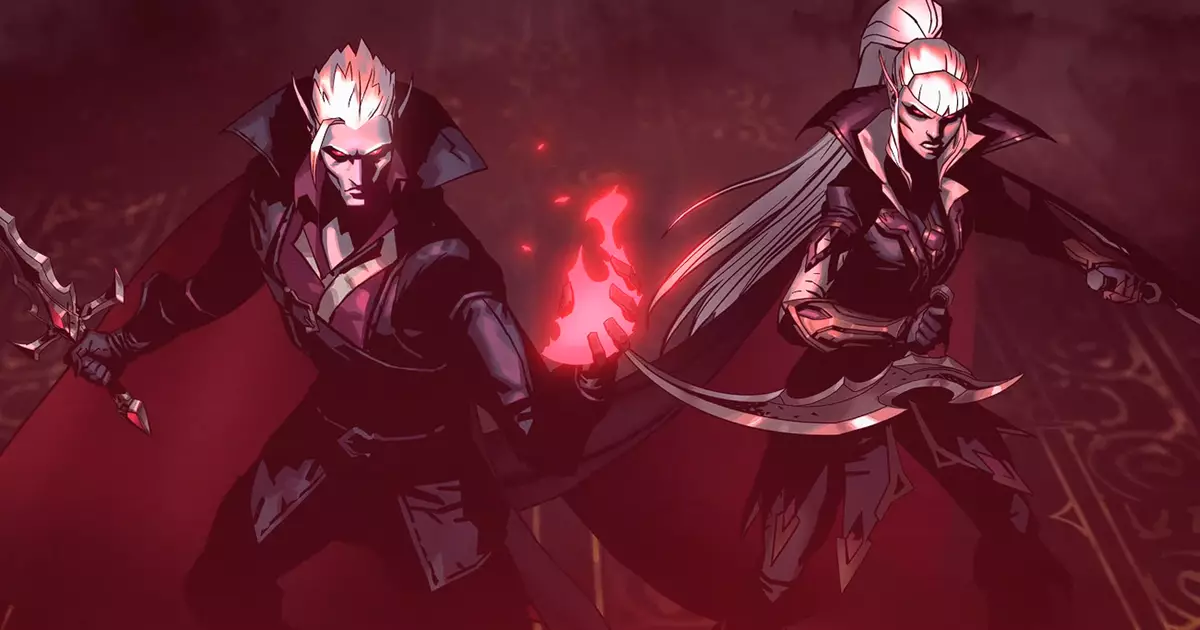In the realm of gaming, there exists a unique allure surrounding vampires—a fascination that V Rising taps into by thrusting players into a Gothic world where they can explore the darkly enchanting life of a fledgling vampire. From the promise of an expansive environment reminiscent of classic titles to a rich lore that pays homage to folklore, the game presents a blueblood fantasy. Yet, lurking beneath this elaborate aesthetic is a set of survival mechanics that may clash with the sheer primal essence that vampirism represents.
At its core, V Rising boasts a combat system that echoes the mechanics popularized by action RPGs like Diablo. Players find themselves engaged in visceral confrontations as they shapeshift into creatures of legend, utilizing an array of strategies to dominate their foes. This action-oriented game design ignites a sense of power, allowing players to experience the thrill of the hunt and embrace their vampire identity. Yet, this excitement is often overshadowed by the stark reality of survival elements. Navigating the thrilling combat mechanics can become a double-edged sword when, to gain strength and resources, the player must endure tedious tasks like gathering materials and constructing gear.
The most striking feature of V Rising is its dual identity juxtaposing the romanticism of being a vampire with the drudgery often associated with survival games. As players traverse the landscape, the constant need to farm materials—an activity reminiscent of a mundane farming simulation—often detracts from the immersive experience. While players initially revel in the trappings of a supernatural being, they soon find themselves wielding axes to chop wood and breaking rocks for resources. This incongruity raises an important question: does the survivalist gameplay enhance the vampire experience, or does it undermine the innate power and elegance of the vampire lore?
Survival games often demand resource management, crafting, and the building of basic necessities that typically seem mundane and antithetical to the vampire mythos. For instance, the irony of having to craft leather armor or weapons stands in stark contrast to the supernatural origin of the vampire—creatures who should dominate through sheer terror and power. Many might argue that such mechanics serve to ground the player in the game’s reality, yet they also create a dissonance that may question the identity of the vampire character. If the vampire must engage in activities akin to those of a common peasant, what does that say about their status within this dark fantasy?
A Complexity of Choices: Blood and Resources
The developers have made a laudable attempt to weave traditional vampire lore into the game. Players must seek out blood to sustain themselves and can choose their victims strategically, which adds a layer of complexity to the gameplay. Different blood types offer unique abilities, allowing players to determine how they wish to navigate the world. This mechanic tries to bridge the gap between survival and vampiric lore. However, striking a balance between power and the relentless grind for resources can prove challenging. As players strive to elevate their vampire’s stature, the overwhelming need for crafting and collecting resources may sometimes overshadow the intended dark fantasy experience.
V Rising invites players into a captivating narrative filled with intricate choices, a compelling combat system, and a sprawling world begging to be explored. Yet, within this enticing framework lies a paradox. The life of a vampire, entwined with drama and power, appears diluted by a survival game’s foundation. Ultimately, as aspiring vampires navigate this vibrant, Gothic universe, they are forced to reconcile the intoxicating thrill of power with the mundane demands of survival. Whether this combination enriches the gaming experience or detracts from the allure of embracing one’s vampire identity ultimately rests with the players. Perhaps the real challenge lies in seeking a path that aligns the virtues of the vampire with the necessity of survival—a journey fraught with potential that echoes through the hallowed halls of the undead.


Leave a Reply